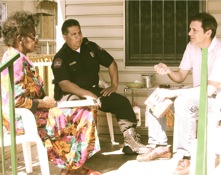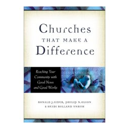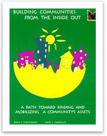







News and Resources is under construction . . .
Look here soon for books, articles, reviews and reports, as well as news about Partners in Hope.








News and Resources is still building . . .
We’re still posting reviews, documents, reports and links that deal with improving community. Look for more soon!

Community Building Resources
Community building is about taking those things a community already has going for it . . . its people, organizations, institutions, churches, businesses, and even its environment . . . and combining these resources to bring sustainable change. That’s not just a bunch of words, either! Below, find books, articles, resources and links that give great ideas about and examples of community building.
Let us know if you have something to add to this page of resources. E-mail aweeks@austin.rr.com.
Articles, Etc.
This is a great set of materials for faith groups to use in learning the basics of community development. Materials are divided into 9 lessons and can be used over a series of weeks or for a weekend retreat. Outstanding in its breadth and depth, this material points to real community transformation.
Dr. Wayne Gordon discusses 8 principles that he has applied in his work in Chicago, including relocation, reconciliation and redistribution. A must read.
David Apple has written a challenging, very helpful article on the process of community building. If you think true community can be built in a day, read this.
The first chapter of Kretzmann and McKnight’s classic book on ABCD. It moves the conversation from “What does a community need?” to “What does a community already have? What can it already do?” Absolutely crucial and practical principles in empowering sustainable community development.
These workbooks take Kretzmann and McKnight’s book even further, as they go into specific areas of developing business, communication, institional and people assets. Included are case studies of ABCD in action.
These six videos take you through the material in Kretzmann and McKnight’s book. Great for a church, neighborhood or student group. These aren’t cheap, so consider buying a set and sharing with others!
Links
CCDA’s mission is to inspire and train Christians who seek to bear witness to the Kingdom of God by reclaiming and restoring under-resourced communities. A great network of folks for faith organizations to join with. They are cutting-edge in empowerment and asset development. Lots of good resources on their website.
World Vision is the world’s largest Christian relief and development organization. It is really a partnership of individual World Vision organizations in almost 100 countries, each with local leadership. World Vision has been on the forefront of publishing research and books dealing with community development and strategy. Check out their resources page for great reads, including material on urban issues in the U.S.
CAN is a partnership of 14 public agencies and coalitions working to build sustainable and just community. Their website has a wealth of resources and data that can inform your community efforts with specifics. They also host a community e-mail forum that keeps you informed about the many resources available to community workers. Excellent example of cooperation and communication.
Though not specifically involved in community development, Foundation Communities is an strong partner to those wanting to improve the lives of the marginalized. FC owns ten apartment communities in Austin that serve low-income families, the disabled and the chronically homeless. They provide affordable housing, GED and job training, financial planning and more. We have found them to be excellent partners in community development efforts in St. John.
Northwestern has done a tremendous amount of research into the effectiveness of the ABCD model. Go to this website for resources and training in this important strategy.
FASTEN, led by Dr. Amy Sherman, offers tons of resources for organizations who work among the urban poor. Save yourself some time trying to reinvent the wheel by looking through the many connections and services FASTEN offers.
Another organization run by Dr. Sherman, this website is rich with materials and opportunities for those working among the urban poor.

Ron Sider gives an excellent overview of the different kinds of transformation community development that real churches are doing in their neighborhoods. A good book for a church in the envisioning stage.

Bryant Myers draws on his many years in development work with World Vision in his book on transformational development. He focuses on the false dichotomy between the physical and spiritual that the church has accepted, and he gives a solid biblical basis for development. A must read.

This guide to what the authors call "asset-based community development" summarizes lessons learned by studying successful community-building initiatives in hundreds of neighborhoods across the United States. It outlines in simple, "neighborhood-friendly" terms what local communities can do to start their own journey down the path of asset-based development. Very practical and useful for any group wanting to get communities really connected and moving.

One of the toughtest parts of community development is partnering together. Phil Butler gleans from his many years of experience in international development insights into how we can team up effectively. An important and popular book right now.

In his latest book, Robert Lithincum explores how the church can use power in right ways to transform urban communities. Churches have often resisted the word “power” because of its association with domination and control, but Lithincum defines power in terms of community capacity, assets, and willingness to act. An important book, even if it makes you a little uncomfortable.




